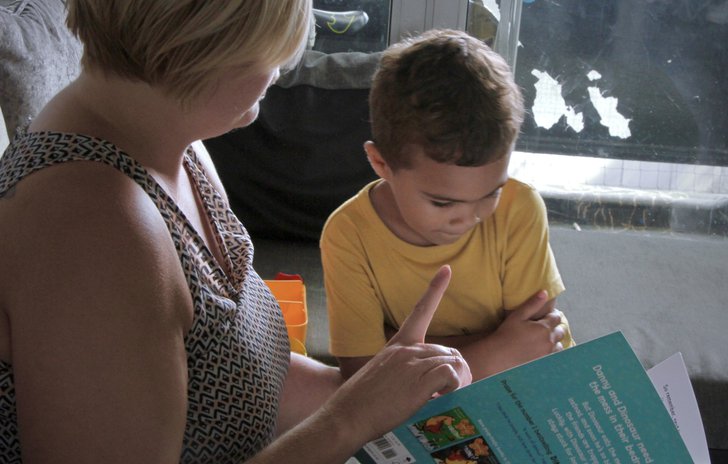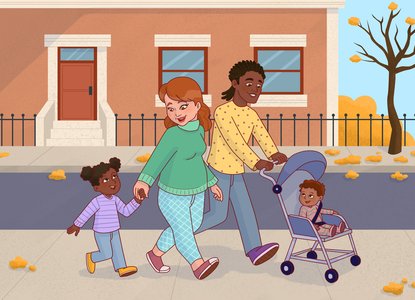As your child grows, they’ll be able to say, do and understand more and more. Around the age of 4, lots of children go to nursery. They can understand and say lots of words and sentences now. You can see them using their speech to meet new friends, work out problems and find things out by asking lots of questions.
Taking part
Your four-year-old will be able to take turns and will be starting to share with adults and other children. They will enjoy playing with other children and can start a conversation.
Your child will listen to longer stories and answer simple questions about a story they have just heard.
Four-year-olds start to enjoy simple jokes – though often their own jokes make little sense.
Here are some questions to help you think about how your little one is getting on:
- Does your child like to play and talk with others?
- Does your child enjoy sharing books with you, especially ones with rhymes?
- Is your child starting to be able to plan games with others?
Understanding
Your child will understand more and more of what people are saying. They will follow instructions with four key words or in two parts, for example: “Get your coat and stand by the door”. They will understand ‘why’ questions and questions about past and future events.
Speaking
At this age, children can explain their ideas, talk in sentences and talk about things that have happened in the past. They can use longer sentences and link sentences together, for example: “I had pizza for tea and then I played in the garden.”
They can answer questions about ‘why’ something has happened.
They will use most sounds correctly, but may still have difficulty with “th”, “r”, “sh”, “ch” and “j”. Children of this age still find sounds in words with several syllables tricky, like ‘escalator’. Mistakes where words have groups of consonants are still common, like “bider” instead of “spider”.
Any Concerns?
All children learn different things at different times. No two are the same. If your child is doing some of these things, but not all of them, this is normal.
If you are worried about your child's development, speak to your Health Visitor, family hub or childcare provider. They should be able to give you some simple ideas of how to support your child's development at home. Or they may suggest a visit to your GP.
Here are some other places where you may be able to find useful tips and advice:




